J. David Core's Blog, page 7
August 25, 2017
Guest Post: Politics, Philosophy, and the Art of the Novel By John Corry
 (EDITOR'S NOTE: I asked John Corry to send me an author bio, and I think maybe he accidentally forwarded his dating profile instead. Anyway, this is what he sent.)6'1"; 27 years old; Cannibal Corpse, Taylor Swift, Eminem enthusiast; Philly; Single
(EDITOR'S NOTE: I asked John Corry to send me an author bio, and I think maybe he accidentally forwarded his dating profile instead. Anyway, this is what he sent.)6'1"; 27 years old; Cannibal Corpse, Taylor Swift, Eminem enthusiast; Philly; SingleJohn is the author of The Zombie Ritual: A Second Coming (A Narrative Intro to Plato's Forms)When a zombie outbreak puts a teenage dance party to a violent end, lovestruck metalhead Chuck Zelmer finds himself in a bloody, graphic and academically philosophic chase through the halls of the Bed and Breakfast where the party took place.
In 380 BC, the ancient Greek philosopher Plato (no, not the children’s plaything (in a manner of speaking)) wrote his classic Republic.You’d have to have been living under a rock in the western world to at least not have heard of Plato, and, likely, his ‘masterwork’, Republic (rock? Or a shadow of one?...). In it, Plato lays out the foundations for much of what has become ‘Western Civilization’ in the centuries since it was written; the ideas of democracy, oligarchy, and tyranny were all laid out in writing for the first time in Republic, and its idea of ‘the philosopher ruler’ (or: ‘king’, depending on your translation) is likely the cornerstone from which much political thought has grown into action (the idea of ‘the philosopher ruler’: that progressing mankind is not rested on ‘philosopher rulers’ or ‘kings’ ruling over the rest of mankind as some sort of birth-righted divine being sent only from God, but that ‘philosophers’ are the ones who should be ‘ruling’, if ruling is necessary, because being a ‘philosopher’ is knowing that ‘being a philosopher’ is not exactly all pats on the back and yacht parties).Among many achievements, many credit Plato with creating what is now the modern novel, and it is not ironic that the claim comes as an ode to a ‘philosopher’ such as that guy (Plato). Plato wrote primarily in dialogues, with settings and characters, albeit not developed in any narrative way (nor too often applicable to the ideas discussed in the dialogues), talking about the meaning of life, death, and why so many people seem to love hurting so much. What is a novel if not a discussion of those things, or a representation of them? And what does ‘the meaning of life, death, and why so many people seem to love hurting so much’ have to do with seeing the world objectively? How does one do that?
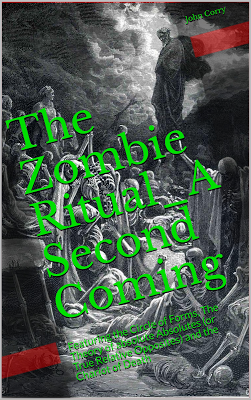 Being a writer in any time of political intrigue is to play quite a role, and consciously. No writer goes about writing thinking: ‘this has nothing to do with the world around me.’ It’s a given. You are a product of your environment, just as your decisions, as everyone else’s, affect what that environment is. Writing anything, but especially novels given their ability to cross over emotional and political lines if written well enough, is particularly guilty of this, as, further, recording anything puts a bit more of a lasting immediacy to it. Being a writer in times such as these (‘times such as these’? 2017: the age of confusion, fake news #AllHandsMatter , immaturity, HATE) also brings with it something else of quite the dissociational article: writers are affected by these things, by current events, facts and other people. You wanna call it emotionally, intellectually, scientifically, I-don’t-care, if you’re a halfway decent writer, part of your job is to see and understand the world in a deeper and more relatable way, through one aspect to most effectively convey both emotions and understandings to other people, and through another because you, yourself, simply can’t stop doing it (seeing and understanding the world in a deeper and more relatable way), for whatever (natural?) reason (no, no; ‘egotistical’ is way more likely).I don’t mean to say that writers are any more prone to emotion than anyone else, or that they have any more of a ‘right’ to be, or a ‘job’ to be, but that they are likely expected to attempt to understand them little better, at least subjectively, and, more so, that we all have the capacity to be ‘writers’, in that we all are trying to make sense of the world around us and do so through the veil of facts, knowledge and emotion. At a time when political upheaval, and public interest in it, is more abundant than bad pop music, this ability is more important, and observable, than ever (this, of course, assuming that most people do want to grow as humans, and not just indulge in one of those three ‘veils’ just mentioned (facts, knowledge, and emotion)).For one trying to make sense of all this, it can be a little disheartening. I mean, damn, dude, have you looked around lately? Canada now has laws enabling the government to forcibly take your child away if they deem your parenting skills not ‘progressive’ enough, The U.S. is almost literally tearing itself apart (again), Bangledesh is practically under water, and, meanwhile, nobody is really talking about these things–they’re screaming about them. ‘My experience doesn’t care about your facts!’, ‘facts don’t care about your feelings!’, ‘your feelings, facts, or knowledge is WRONG and, therefore, you are not a human being!’ Maybe there is something the anti Bill C-16 people (a controversial Canadian bill that ‘adds gender identify or expression to the list of prohibited grounds of discrimination in the Canadian human rights act’) are missing? Maybe the situation in North Korea is as complicated as it seems? Maybe ‘people’ never change? Maybe democracy is fundamentally flawed? These are questions that need to be debated dialectically and that simply does not happen by yelling and screaming and ignoring the existence of other people, no matter how ‘evil’.Grappling with these questions in any sort of personally constructive manner (‘writing’ (see: psychologist Carl Jung’s ‘experiments’ regarding patients and art)) can of course become difficult when the world seems to beat you mercilessly at your own game at every turn, which I, personally, like to think that I can attest to rather well: Pussygate?! Colin Kaepernick? Trudaeu’s abs?! PIZZAGATE?!?!?! How could anybody ever come up with this stuff, fiction writer, journalist, plumber or whoever?! It’s like ‘Survivor’ got stacked with the characters from ‘Jersey Shore’ who then all got thrown into a Dostoevsky novel whose main theme was: ‘what do you think of InfoWars’ Alex Jones’! The word count alone would be insane!!! You add in the character that is Vladimir Putin, the ridiculousness of the situation in Asia, and the potency of the one in the Middle East, and you got a novel more gripping, emotionally vast, and as psychologically on-point than any Plato, Stephen King, Jung, or Dostoevsky could ever even dream of!Not in a million years would anyone believe that the things happening in the political spectrum right now actually happened if it weren’t for the fact that it is all actively being recorded in real time, as it happens. Perhaps this renders the writer’s ability to merely represent it obsolete #PostmodernismIsARealTHing,ButItIsNotAnAbsolute ? Representations are always needed, so long as they are bringing into focus something that is not obvious in the original thing which it is representing. May there be ways to ‘represent’ something that are not found in traditional textbooks or even the all-wise passed-down spoken word? …If politics has any relation to the idea of ‘power’, or, more importantly for my point here, Nietzsche’s ‘will to power’, it is that politics is essentially a focus of power, or are Nietzsche’s will to power in-action. If any ‘political power’ wanted to expand itself, as any primitive entity does (remember: in relation to how long homo-sapiens have been a species (roughly 200,000 years), the time between Plato (380 BC (ish)) and now is but a blip on the map; and the concepts of economics and psychology, both so important, complicated, and implicative of ‘the meaning of life’, and how a species may go about that question, were both just created within the past 250 years), all it would have to do is blur the ability of ‘the writer’ to make sense of the world around her. If a political power, or: a group of Individuals, wanted absolute power, all they would have to do is hinder the capabilities of its potential subordinates to ‘think’ or ‘will’ ‘sense’.The ‘writer’/‘philosopher’ conveys personal emotions (and ‘thought’) through the cover of a quasi-reality, or at least a reality meant to represent itself as such, in the mind, in that bridge where the conscious meets the unconscious (Jung). This ability can be psychologically taken away by any number of factors–through stopping the writer from making sense of her feelings, or from feeling anything in the first place (L), or through hindering her ability to create realistic worlds, the list could be quite large–but once it is, people no longer have a guide through which Understanding is presented as not only possible, but also preferable. ‘Power’ is the antithesis to ‘Understanding’; one is based in a primal survival instinct, the other in an intellectual one.I’ve been working on a satirical crime noir examining the questions of police brutality, political correctness, and gang culture through the eyes of a group of college kids too stupid to know that alcohol consumption impairs judgment. I could get depressed at how difficult it can be given what’s been going on politically lately (as I certainly at times have), or I can use that to make it better. Every time I look at the news, and realize that reality has beaten me to the punch on one of my points, it forces me to reexamine my stance and, far more importantly, the way I’m going about showing it through my ‘fictional’ characters, plot turns and overall story. There’s not much difference between doing that and growing as a human being, novels just tend to take fewer hours to get through than lifetimes (hopefully).The art of the novel, and its importance, has never been more apparent. The ancient version of ‘why?’ is today ‘how?’ (terminologically speaking). Let ‘them’ show us what the difference is; we’ll show ‘them’ that it’s not about ‘the difference’.
Being a writer in any time of political intrigue is to play quite a role, and consciously. No writer goes about writing thinking: ‘this has nothing to do with the world around me.’ It’s a given. You are a product of your environment, just as your decisions, as everyone else’s, affect what that environment is. Writing anything, but especially novels given their ability to cross over emotional and political lines if written well enough, is particularly guilty of this, as, further, recording anything puts a bit more of a lasting immediacy to it. Being a writer in times such as these (‘times such as these’? 2017: the age of confusion, fake news #AllHandsMatter , immaturity, HATE) also brings with it something else of quite the dissociational article: writers are affected by these things, by current events, facts and other people. You wanna call it emotionally, intellectually, scientifically, I-don’t-care, if you’re a halfway decent writer, part of your job is to see and understand the world in a deeper and more relatable way, through one aspect to most effectively convey both emotions and understandings to other people, and through another because you, yourself, simply can’t stop doing it (seeing and understanding the world in a deeper and more relatable way), for whatever (natural?) reason (no, no; ‘egotistical’ is way more likely).I don’t mean to say that writers are any more prone to emotion than anyone else, or that they have any more of a ‘right’ to be, or a ‘job’ to be, but that they are likely expected to attempt to understand them little better, at least subjectively, and, more so, that we all have the capacity to be ‘writers’, in that we all are trying to make sense of the world around us and do so through the veil of facts, knowledge and emotion. At a time when political upheaval, and public interest in it, is more abundant than bad pop music, this ability is more important, and observable, than ever (this, of course, assuming that most people do want to grow as humans, and not just indulge in one of those three ‘veils’ just mentioned (facts, knowledge, and emotion)).For one trying to make sense of all this, it can be a little disheartening. I mean, damn, dude, have you looked around lately? Canada now has laws enabling the government to forcibly take your child away if they deem your parenting skills not ‘progressive’ enough, The U.S. is almost literally tearing itself apart (again), Bangledesh is practically under water, and, meanwhile, nobody is really talking about these things–they’re screaming about them. ‘My experience doesn’t care about your facts!’, ‘facts don’t care about your feelings!’, ‘your feelings, facts, or knowledge is WRONG and, therefore, you are not a human being!’ Maybe there is something the anti Bill C-16 people (a controversial Canadian bill that ‘adds gender identify or expression to the list of prohibited grounds of discrimination in the Canadian human rights act’) are missing? Maybe the situation in North Korea is as complicated as it seems? Maybe ‘people’ never change? Maybe democracy is fundamentally flawed? These are questions that need to be debated dialectically and that simply does not happen by yelling and screaming and ignoring the existence of other people, no matter how ‘evil’.Grappling with these questions in any sort of personally constructive manner (‘writing’ (see: psychologist Carl Jung’s ‘experiments’ regarding patients and art)) can of course become difficult when the world seems to beat you mercilessly at your own game at every turn, which I, personally, like to think that I can attest to rather well: Pussygate?! Colin Kaepernick? Trudaeu’s abs?! PIZZAGATE?!?!?! How could anybody ever come up with this stuff, fiction writer, journalist, plumber or whoever?! It’s like ‘Survivor’ got stacked with the characters from ‘Jersey Shore’ who then all got thrown into a Dostoevsky novel whose main theme was: ‘what do you think of InfoWars’ Alex Jones’! The word count alone would be insane!!! You add in the character that is Vladimir Putin, the ridiculousness of the situation in Asia, and the potency of the one in the Middle East, and you got a novel more gripping, emotionally vast, and as psychologically on-point than any Plato, Stephen King, Jung, or Dostoevsky could ever even dream of!Not in a million years would anyone believe that the things happening in the political spectrum right now actually happened if it weren’t for the fact that it is all actively being recorded in real time, as it happens. Perhaps this renders the writer’s ability to merely represent it obsolete #PostmodernismIsARealTHing,ButItIsNotAnAbsolute ? Representations are always needed, so long as they are bringing into focus something that is not obvious in the original thing which it is representing. May there be ways to ‘represent’ something that are not found in traditional textbooks or even the all-wise passed-down spoken word? …If politics has any relation to the idea of ‘power’, or, more importantly for my point here, Nietzsche’s ‘will to power’, it is that politics is essentially a focus of power, or are Nietzsche’s will to power in-action. If any ‘political power’ wanted to expand itself, as any primitive entity does (remember: in relation to how long homo-sapiens have been a species (roughly 200,000 years), the time between Plato (380 BC (ish)) and now is but a blip on the map; and the concepts of economics and psychology, both so important, complicated, and implicative of ‘the meaning of life’, and how a species may go about that question, were both just created within the past 250 years), all it would have to do is blur the ability of ‘the writer’ to make sense of the world around her. If a political power, or: a group of Individuals, wanted absolute power, all they would have to do is hinder the capabilities of its potential subordinates to ‘think’ or ‘will’ ‘sense’.The ‘writer’/‘philosopher’ conveys personal emotions (and ‘thought’) through the cover of a quasi-reality, or at least a reality meant to represent itself as such, in the mind, in that bridge where the conscious meets the unconscious (Jung). This ability can be psychologically taken away by any number of factors–through stopping the writer from making sense of her feelings, or from feeling anything in the first place (L), or through hindering her ability to create realistic worlds, the list could be quite large–but once it is, people no longer have a guide through which Understanding is presented as not only possible, but also preferable. ‘Power’ is the antithesis to ‘Understanding’; one is based in a primal survival instinct, the other in an intellectual one.I’ve been working on a satirical crime noir examining the questions of police brutality, political correctness, and gang culture through the eyes of a group of college kids too stupid to know that alcohol consumption impairs judgment. I could get depressed at how difficult it can be given what’s been going on politically lately (as I certainly at times have), or I can use that to make it better. Every time I look at the news, and realize that reality has beaten me to the punch on one of my points, it forces me to reexamine my stance and, far more importantly, the way I’m going about showing it through my ‘fictional’ characters, plot turns and overall story. There’s not much difference between doing that and growing as a human being, novels just tend to take fewer hours to get through than lifetimes (hopefully).The art of the novel, and its importance, has never been more apparent. The ancient version of ‘why?’ is today ‘how?’ (terminologically speaking). Let ‘them’ show us what the difference is; we’ll show ‘them’ that it’s not about ‘the difference’.It’s about ‘this’.
***
Website: http://revolutionized.worldTwitter: @RevolutionizedW Facebook: http://facebook.com/revolutionizedw Instagram: http://instagram.com/revolutionizedwReddit: http://reddit.com/revolutionizedw
Published on August 25, 2017 09:00
August 18, 2017
Author Interview: Ted Galdi: Author of An American Cage
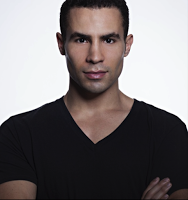 Ted Galdi is the author of the bestselling novel Elixir. The book is a winner of a Reader Views Reviewers Choice Award and a Silver Medal in the Readers' Favorite Book Awards. Ted is a graduate of Duke University and lives in Los Angeles. He has been featured by ABC and FOX television, iHeartRadio, Examiner, and many other media outlets. His second novel, An American Cage, is set for release Fall 2017.
Ted Galdi is the author of the bestselling novel Elixir. The book is a winner of a Reader Views Reviewers Choice Award and a Silver Medal in the Readers' Favorite Book Awards. Ted is a graduate of Duke University and lives in Los Angeles. He has been featured by ABC and FOX television, iHeartRadio, Examiner, and many other media outlets. His second novel, An American Cage, is set for release Fall 2017.An American Cage Three inmates break out of a maximum-security prison in Texas, one of them Danny Marsh, a suburban kid in his twenties who landed in jail because of a crime he never intended to commit. An American Cage follows Danny and his two escape partners over a twenty-four-hour period as they struggle to cross Texas to freedom in Mexico. On this dangerous journey, Danny has to evade the rabid Texas authorities, and even worse, the schemes of one of his closest allies, who isn't who he seems.
Who are your influences?My favorite author is John Updike. Unlike me, he wasn't a thriller writer. But the best elements of his work transcend genre. I think any fiction writer would benefit from reading him. His plots aren't necessarily "exciting" per the mainstream definition of the word. They mainly feature everyday people in everyday settings. This, however, leaves him nothing to hide behind, and makes you realize how good of a writer he was. Often, car chases and explosions can divert a reader's attention from bland writing. When reading Updike, something as simple as a man going for a jog can be captivating. The descriptions, constant psychological probing, and subtle tie-ins of common suburban situations to profound philosophical movements make for a unique reading experience.
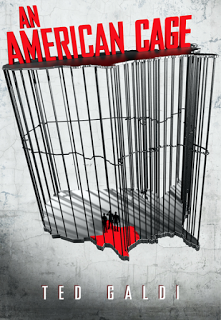 When did you begin writing?"Professionally," with the publication of my first novel, Elixir, in 2014. However, it all started when I was a kid. I wrote a whole bunch of stuff along the way, from short stories to comedy skits to screenplays. I tried selling a few scripts to Hollywood when I was younger. No sales. However, the experience was great. It taught me a lot about "feature length" storytelling and how to structure a longer story through multiple acts, which of course is an essential part of novel writing.
When did you begin writing?"Professionally," with the publication of my first novel, Elixir, in 2014. However, it all started when I was a kid. I wrote a whole bunch of stuff along the way, from short stories to comedy skits to screenplays. I tried selling a few scripts to Hollywood when I was younger. No sales. However, the experience was great. It taught me a lot about "feature length" storytelling and how to structure a longer story through multiple acts, which of course is an essential part of novel writing. How do you come up with your stories, characters, character names, POV, etc?The stories themselves always start with a message. A simple, one-sentence pronouncement of what I want the story to "say." The characters and plot become an extension of that. Like most other writers I assume, I begin my character work with a protagonist. I'll ask myself, "Who's the best person to deliver my message?" Supporting characters often act as weights and counterweights that pull the protagonist in different directions concerning the message. They should serve to show the various sides of the "argument" underpinning the theme. They naturally evolve in my mind once I have an image of the main character fleshed out.As for names, the most important thing is for them to be a demographic fit with the character, or else they'll seem forced. Culture, geography, age, and socioeconomic status all contribute to a name. It's sometimes interesting to concoct a name as a reference. For instance, if a character is a symbol of something, you can allude to that via the character's name. However, this only works if the name sounds authentic. POV choices are important. I try to make them in the broader context of the story, in addition to the "here and now" of a scene. The POV structure of my first book, Elixir, is very different than that of my second, An American Cage. Elixir is a seven-year saga following the protagonist, Sean Malone, all across the globe. He is the central part of the vast majority of scenes and the only character whose internal thoughts are described. An American Cage, on the other hand, takes place over a twenty-four-hour period. I use a variety of POVs in addition to protagonist Danny Marsh's, which I feel adds depth to the pacing of the one-day story.
Do you work from an outline?Yes, but not a very detailed one. Outlines are important, but jumping into the story and getting a feel for the characters as they talk and think is also important. A character you initially envisioned one way may change as you get to know her better. It's obviously impossible to anticipate these changes in a pre-draft outline, so investing a lot of time into one can be a waste. At least for me.
Can you tell us a little about your writing philosophy? I try to write things that are heart-pumping and thought-provoking at the same time. I see a lot of writing that's one or the other, but very rarely something that's both. Who knows if I'm actually pulling it off. But I'm at least trying.
Have you ever tried writing in any other genres?When I was a teenager I used to love writing comedy. I'd write up sketches that my friends and I would videotape. Humor is important. Though An American Cage is very much so a serious thriller, I put a few things in there that will hopefully make people laugh. A touch of humor helps balance out the intensity of drama.
Do you have any interesting writing-related anecdotes to share?I sometimes get asked why I don't use my full name as my author name, i.e., why I go by "Ted" versus whatever Ted is short for. Well, it's not short for anything. My real first name is simply Ted. Not Edward. Not Theodore. Not Thaddeus. Three letters, one syllable. I guess my parents were "into the whole brevity thing."
Book Trailer and First Chapter Preview: http://www.tedgaldi.com/an-american-cage.htmlBook Goodreads Link: https://www.goodreads.com/book/show/35648233-an-american-cageAuthor Facebook Page: https://www.facebook.com/TedGaldiAuthor Instagram Page: https://www.instagram.com/tedgaldi/
Published on August 18, 2017 07:54
August 11, 2017
Renée's August 2017 FREE eBooks Promo
This weekend, August 12 and 13, is Renée Pawlish's monthly promo, and this time 'round it's FREE eBooks in the mystery and thriller genres. There are 20 titles to choose from, but why choose? Go for it! Download all 20.
You can find all 20 titles at ReneePawlish.com/promo/
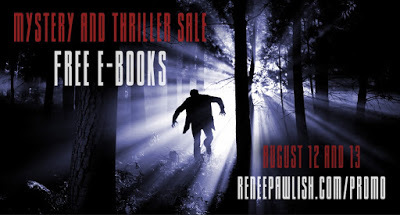
You can find all 20 titles at ReneePawlish.com/promo/

Published on August 11, 2017 22:27
August 6, 2017
First Draft, Campnanowrimo, and My Cocktails
For those who aren't familiar with NaNoWriMo, November is designated as National Novel Writing Month. There is a website dedicated to this tradition in which authors post their project goals, and keep track of their progress, and offer one another support. I have used the site to complete three novels in the past.
In July, the site also runs a kind of camp for other kinds of writing such as scripts and books of poetry. I used the site last month to keep me on track to complete a first draft of a prequel to the Bartering Angel series. That first draft came in at just over 30 k words, but I am still polishing it and adding to it a little. I had initially been shooting for 50,000. Then I reduced the goal to 40,000, but 30,000 turned out to be the entire story in first draft form.
During the month, I also posted my word-count tally and my nightly cocktail on Twitter. I was able to actually come up with 31 distinct cocktails, a different one for each evening. Here are a few of my favorites. They can all be seen on my twitter feed @gamutman





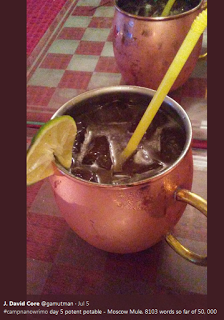
In July, the site also runs a kind of camp for other kinds of writing such as scripts and books of poetry. I used the site last month to keep me on track to complete a first draft of a prequel to the Bartering Angel series. That first draft came in at just over 30 k words, but I am still polishing it and adding to it a little. I had initially been shooting for 50,000. Then I reduced the goal to 40,000, but 30,000 turned out to be the entire story in first draft form.
During the month, I also posted my word-count tally and my nightly cocktail on Twitter. I was able to actually come up with 31 distinct cocktails, a different one for each evening. Here are a few of my favorites. They can all be seen on my twitter feed @gamutman






Published on August 06, 2017 10:20
July 22, 2017
If You Use Bookfunnel, Here's a Giveaway You Might Enjoy.
In the past, I have told you about a group giveaway hosted by author Anne R. Tan through Instafreebie. This month, Anne is hosting a similar giveaway featured on Book Funnel. Book Funnel is a unique site where readers establish an account through which authors can safely send you direct uploads to your eReader device. There are 27 mystery and thriller novels available for download at no cost.
The giveaway runs from July 21 through the 31st and can be found at this link. I don't have a book in this promo, but I am watching it closely to gauge for future value.
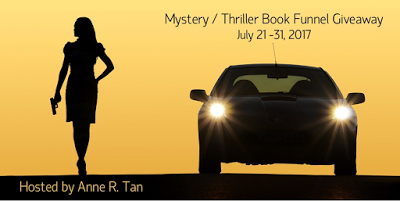
The giveaway runs from July 21 through the 31st and can be found at this link. I don't have a book in this promo, but I am watching it closely to gauge for future value.

Published on July 22, 2017 09:18
July 14, 2017
My Progress and Deals For You
Just a quick note this month to bring you up to date on my progress. I am currently about a quarter to a third of the way through the manuscript for Where Angels Fear, the prequel to On the Side of the Angel. Once I finish that, I will send parts of it around to a few of the other authors involved in the Bartering Angel project for revisions. While they have the manuscript, I will begin work compiling the audiobook version of 8 Tales of Noir.
When I get the notes back from the other authors I will make corrections, additions, and adjustments to the manuscript and it will be ready for beta readers. By the way, drop me a note if you'd like to be on the beta team for that story.
Once the betas have had their say, it will be time to send out Advanced Reader Copies, so also let me know if you'd like to be on that ARC team. Hopefully those will be ready sometime in September.
Also...
This weekend is Renée Pawlish's monthly promo. You can pick up a lot of great mystery and thriller reads for just 99¢ by visiting reneepawlish.com/promo right now.
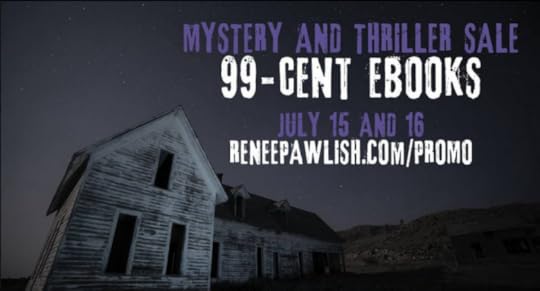
When I get the notes back from the other authors I will make corrections, additions, and adjustments to the manuscript and it will be ready for beta readers. By the way, drop me a note if you'd like to be on the beta team for that story.
Once the betas have had their say, it will be time to send out Advanced Reader Copies, so also let me know if you'd like to be on that ARC team. Hopefully those will be ready sometime in September.
Also...
This weekend is Renée Pawlish's monthly promo. You can pick up a lot of great mystery and thriller reads for just 99¢ by visiting reneepawlish.com/promo right now.

Published on July 14, 2017 22:30
July 7, 2017
Audiobook Review: Revelation by Carter Wilson
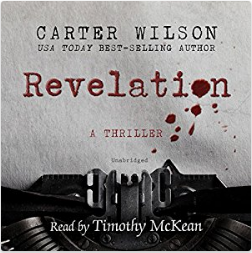 At a small New York college, two roommates set out to create a religious cult as a social experiment. Soon, however, things take a malevolent turn when the burgeoning Church’s chosen messiah turns out to be a socio-pathological lunatic. Waking to find himself trapped in a sort of dungeon cell like that of John of Patmos, with only a typewriter, a spider, and the rotting corpse of his former roommate for companionship, Harden Campbell sets to work writing his book of Revelation.
At a small New York college, two roommates set out to create a religious cult as a social experiment. Soon, however, things take a malevolent turn when the burgeoning Church’s chosen messiah turns out to be a socio-pathological lunatic. Waking to find himself trapped in a sort of dungeon cell like that of John of Patmos, with only a typewriter, a spider, and the rotting corpse of his former roommate for companionship, Harden Campbell sets to work writing his book of Revelation. Set over a quarter century ago, Carter Wilson’s novel, Revelation, was only published last year, but it could easily have been set in contemporary times. The story toggles between third-person point of view and first as some of the examination of the action puts us in the position of observer, while other chapters are from the perspective of a manuscript being written by the captive, Harden.
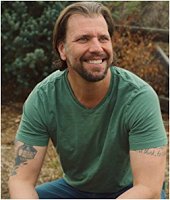 Carter WilsonThere are three main characters, our part-time narrator, Harden; his roommate turned tormenter, Coyote; and Coyote’s girlfriend, Emma. The story takes us from Harden’s first meeting with Coyote all the way to a contrived conclusion in which the triangle of Harden, Coyote, and Emma come together to realize Coyote’s penultimate coupde grace, unless a miracle or Deusex Machina intervenes.
Carter WilsonThere are three main characters, our part-time narrator, Harden; his roommate turned tormenter, Coyote; and Coyote’s girlfriend, Emma. The story takes us from Harden’s first meeting with Coyote all the way to a contrived conclusion in which the triangle of Harden, Coyote, and Emma come together to realize Coyote’s penultimate coupde grace, unless a miracle or Deusex Machina intervenes. My review is based on the audio version, which I received in exchange for my honest review, and to be honest, I’m not sure how I felt about the choice of narrator, Timothy McKean. It’s not that he did a bad job. On the contrary, he helped give life to the characters and added a sense of reality to the tension, and in the end that’s really all one can ask of a voice actor. But there is a slight Keanu Reeves-like immaturity to the quality of his tone. Another coming-of-age/college-experience story that wasn’t also about a murderous messianic sadist would probably be right in his wheelhouse.
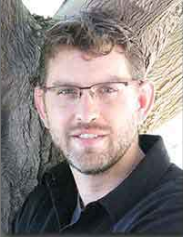 Timothy McKeanAs for the story, I have to confess, I have a particular fondness for thrillers which twist the conventions of religion into something distorted and horrifying. The best parts of this story for me were, in fact, the aspects showing how a charismatic sociopath could easily convince enough vulnerable and weak-willed neophytes to follow his promises of lasting happiness and self-improvement. From my perspective, Jim Jones, L. Ron Hubbard, Joseph Smith, and Paul of Tarsus are all just variations of a theme representing a template from which Wylie “Coyote” Martin was drawn.
Timothy McKeanAs for the story, I have to confess, I have a particular fondness for thrillers which twist the conventions of religion into something distorted and horrifying. The best parts of this story for me were, in fact, the aspects showing how a charismatic sociopath could easily convince enough vulnerable and weak-willed neophytes to follow his promises of lasting happiness and self-improvement. From my perspective, Jim Jones, L. Ron Hubbard, Joseph Smith, and Paul of Tarsus are all just variations of a theme representing a template from which Wylie “Coyote” Martin was drawn.Revelation is a successful thriller the same way that the first season of The Following was a success. We believe that a sociopath with access to vulnerable minds and a fortune in expendable cash could create the illusion that he has a message about the purpose of life. But why wouldn’t we believe that? After all, Joel Osteen and Tony Robbins are real people, and we’ve seen what they have done with the starter recipe. All we have to then do is toss in a little Charles Manson and some Kellyanne Conway. Voila!
Available on Audible
Published on July 07, 2017 09:40
June 16, 2017
Two Promos
Renée Pawlish's promo is this weekend, June 17 and 18; and this time around it's FREE eBooks. You'll find the promo at reneepawlish.com/promo, and for the one and probably only time ever, the book I have included is my newest title, On the Side of the Angel. This is your last chance to get that title for free, and if you grab one it will help push the book up the Amazon rankings, so we both benefit.
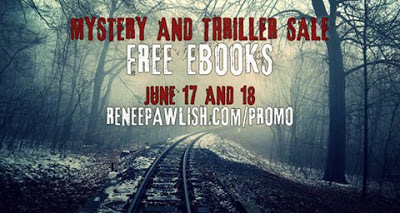
Also this weekend I am participating in a brand new (to me) Instafreebie promo with Book Deals Today. Even if you already have a copy of Five Secrets, the book I've included; but you should click on over and check it out anyway as there are probably several new authors you haven't read before. You'll find that promo at bookdeals.today.
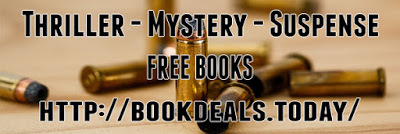
Published on June 16, 2017 22:06
June 12, 2017
I Was Interviewed!
Published on June 12, 2017 22:39
June 6, 2017
It's Publication Day Tomorrow!

I'm very excited to make this announcement. On the Side of the Angel is going to be released tomorrow, June 7! It's available for the introductory price of $.299 for Kindle, and it's enrolled in Kindle Unlimited, so it's free with your membership to that program. It will be available wide in three months when the KU enrollment expires, so if you normally read using Kobo or Nook or iBooks or any of the other channels, you'll have to wait just a little longer. Or you can downlaod the kindle app and read it now if you just can't wait.
Meanwhile, if you are one of the ARC tam members, you can head on over to Goodreads and post a quick review today, and then tomorrow you can visit the book on your local Amazon site and post another.
And remember, due to FTC guidelines, when posting say something like this straight off:
I received a free copy of this book with no expectation of a biased review.
or
The following is my honest opinion, although in the interest of full disclosure I did receive a gift copy of the book from the author.
Of course, if you'd rather, you can just leave a stars-only review. Thanks again, everyone, and I hope you all enjoyed reading OtSotA as much as I enjoyed writing it.
Description Lina Forman has an assumed name, a vendetta, a résumé of varied skills, and the knowledge to make her a force to fear.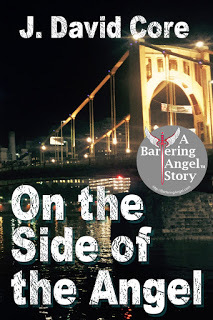
Known in the criminal underground as The Bartering Angel, a mysterious “fixer” whose help keeps the bad guys out of trouble, she assumes the name Lina when she arrives in the Pittsburgh area in 2005. When the son of a local drug runner murders a convenience store clerk during a botched thrill robbery, Lina must keep him out of jail to prove her worth to the local criminal underground. Despite her elaborate scheme to confound the evidence and mislead authorities, two local cops threaten to disrupt her plans and steer the FBI on a path to avoid her red herrings.
Can Lina preserve her reputation and make good on her promises before she has to abandon her vengeance, change her name, and start again? Or will a careless oversight expose her secrets?
Published on June 06, 2017 06:00




